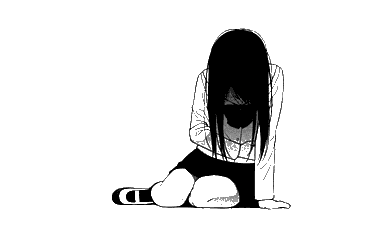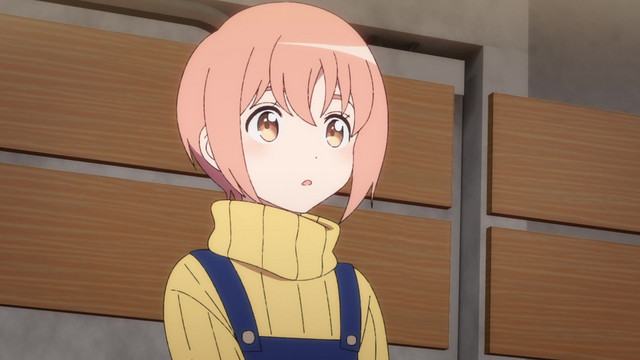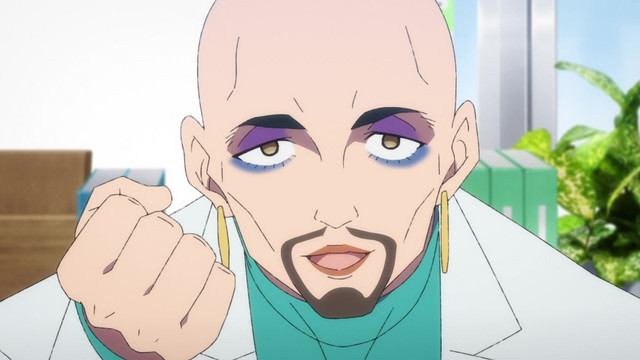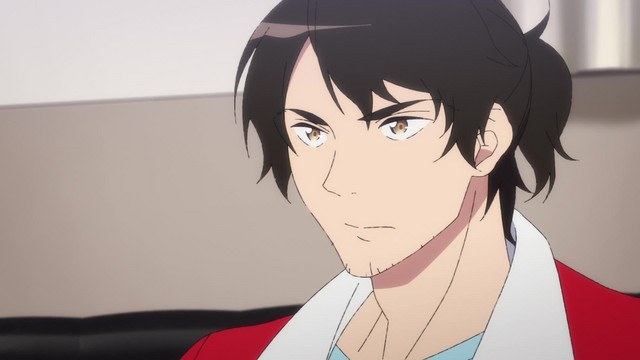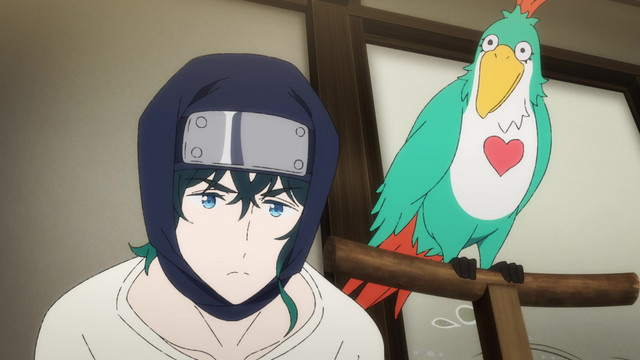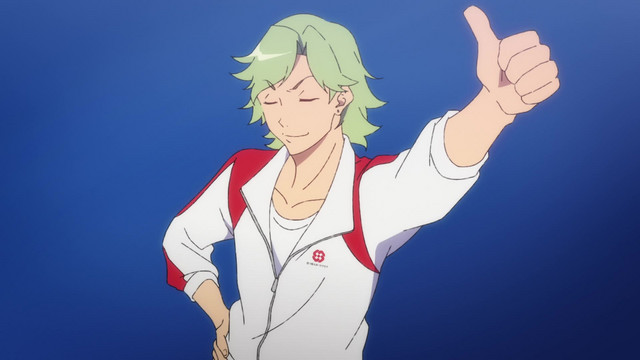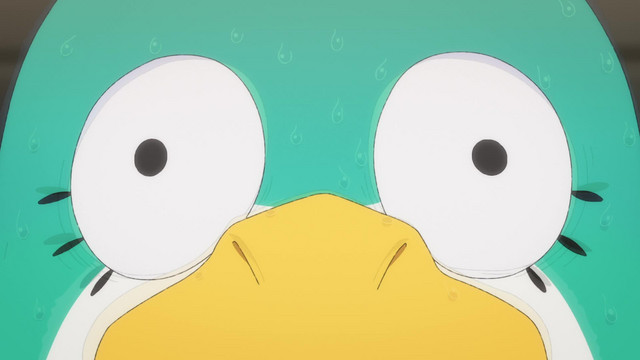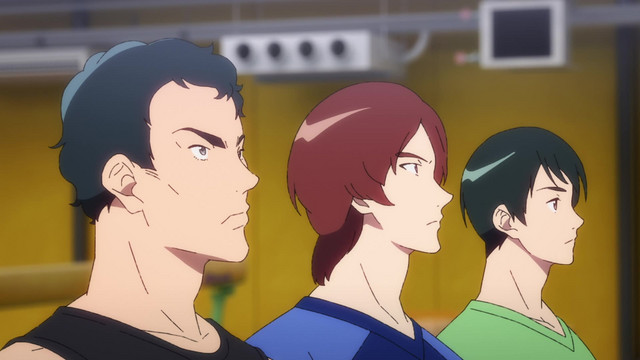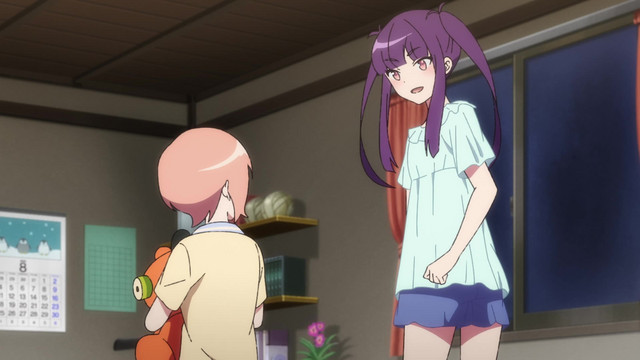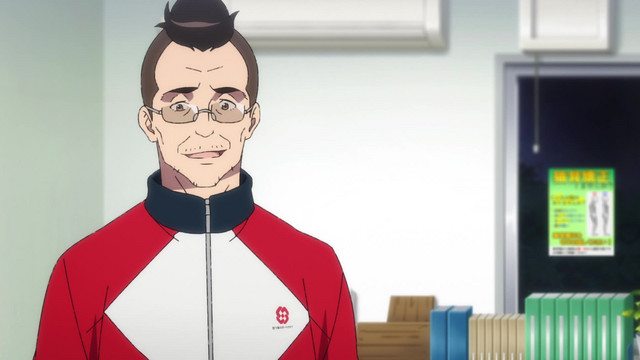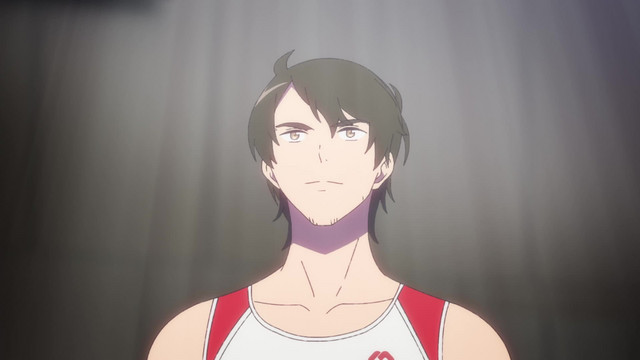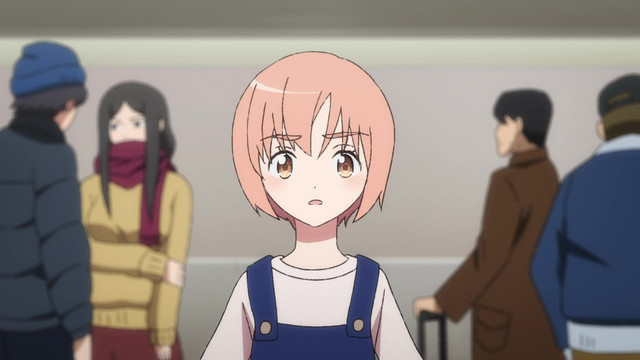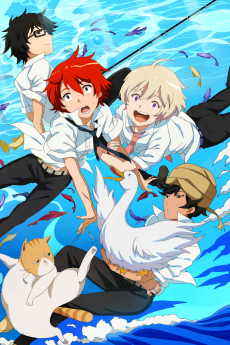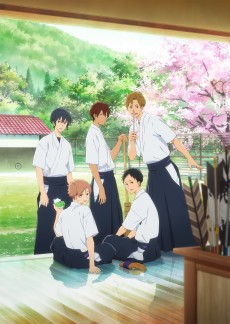TAISOU ZAMURAI
STATUS
COMPLETE
EPISODES
11
RELEASE
December 20, 2020
LENGTH
23 min
DESCRIPTION
Joutarou Aragaki, former member of the national team, had given his whole life for gymnastics and was fighting against his age and physical strength. However, one day he is told by his coach to start thinking of his next career. Joutarou struggles, but his daughter, Rei, is always there by his side. But with one fateful encounter, the Aragakis’ lives change drastically.
(Source: Funimation)
CAST
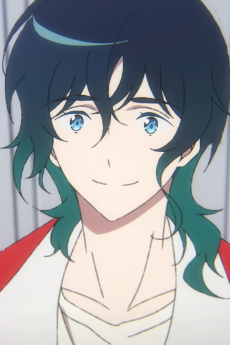
Leonardo Sturges
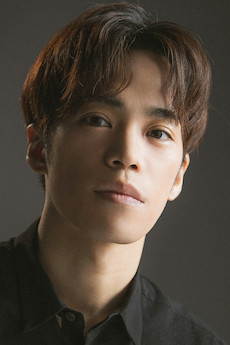
Kenshou Ono
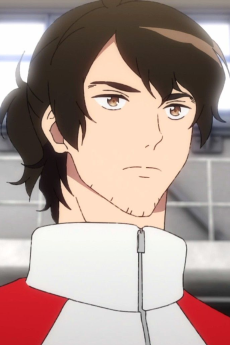
Joutarou Aragaki
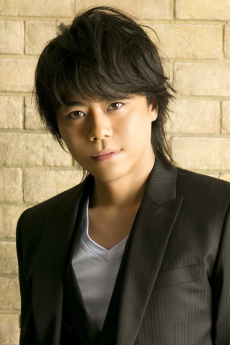
Daisuke Namikawa
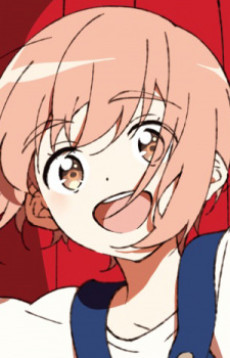
Rei Aragaki
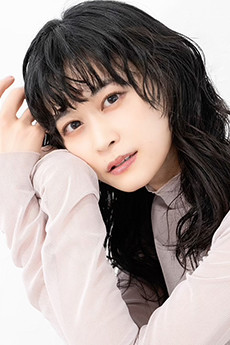
Rina Honizumi
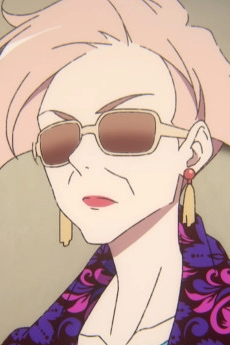
Mari Aragaki
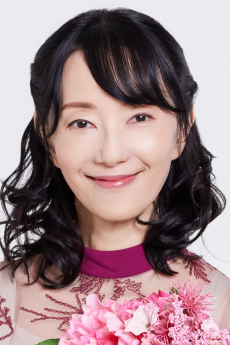
Atsuko Tanaka
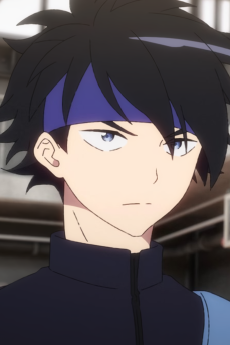
Tetsuo Minamino
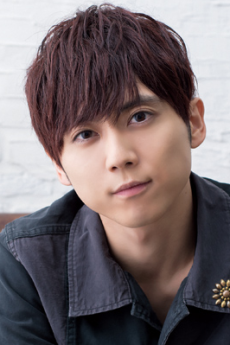
Yuuki Kaji
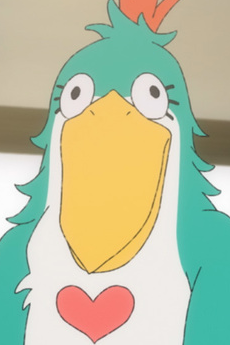
Bigbird Aragaki
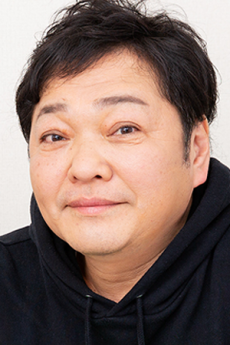
Kappei Yamaguchi
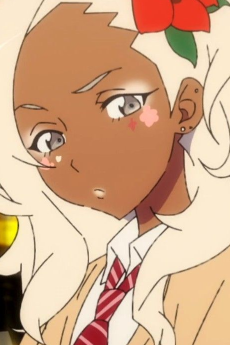
Ayu
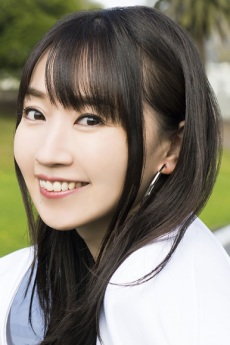
Nana Mizuki
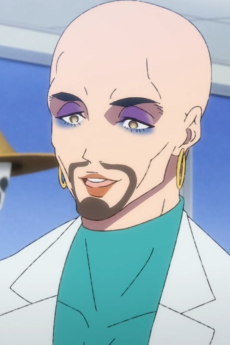
Britney
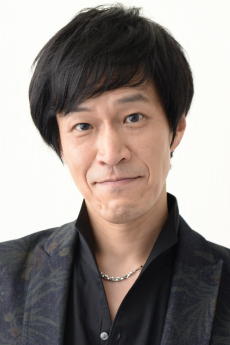
Rikiya Koyama
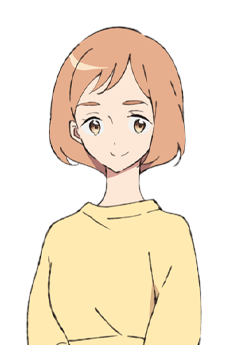
Tomoyo Aragaki
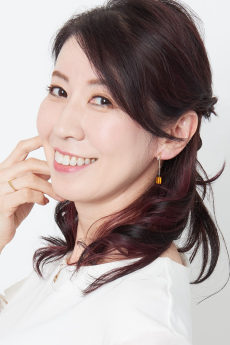
Kotono Mitsuishi
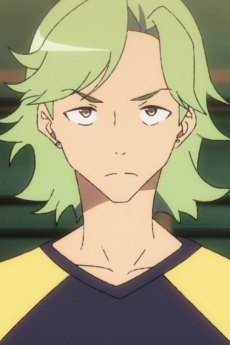
Tomoki Takizawa
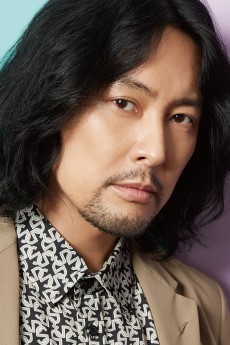
Hiroyuki Yoshino
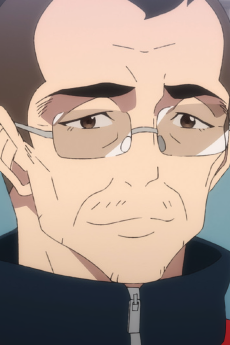
Noriyuki Amakusa

Kenyuu Horiuchi
EPISODES
Dubbed
RELATED TO TAISOU ZAMURAI
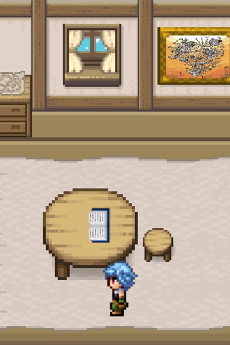 MUSIC AdventureYume ja Nai
MUSIC AdventureYume ja NaiREVIEWS

Kalladry
72/100Not your typical sports anime, tho gymnastics are fun to watch. Jotaro's main issue isn't rivals, it's changing himselfContinue on AniList_In 2002, the world of Japanese men’s gymnastics was still strong. Jotaro Aragaki devoted his entire life to the sport, but things didn’t go as planned. His coach Amakusa suggests he retires. But then an encounter comes that changes the fate of the Aragaki family forever._ I’ll be honest: I pick this up based solely on the image (poster? key image? Surely there has to be a name for these things?) that Funimation used:

Let’s see, we’ve got 1) mention of gymnastics, 2) a bright and happy color scheme, 3) guy who looks like an adult, not creepy, 4) little girl, unsexualized, 5) random assortment of weird items.
So, the vibe I’m getting is “not serious but not wacky, with gymnastics.” And gymnastics is cool!
I’m a simple person, really.
We start off with Jotaro, in his late 20s, presumably past his prime as a pro gymnast, and with few recent wins compared to his glory days as “the gymnastics samurai” in 90s Olympics, the nickname coming from his ponytail hairstyle. With his career stagnating and a daughter to raise, he must make changes. While trying to work up the courage to tell his daughter (and biggest cheerleader) that he’s going to retire, they take a trip to Edo Wonderland and meet a character who changes everything.
This wasn’t your typical sports anime, though the gymnastics are featured and fun to watch. Jotaro has competitors, yes, but his main problem isn’t a rival, it’s having to change himself. And not just “work harder, take things seriously” as is normal in sports stories, but he essentially has to re-learn how to listen to people.
Jotaro was a nice, interesting protagonist. He’s not mean or dumb, but he tends to take things at face value and sometimes not even that, processing comments through the filter of what he’s already thinking about, and therefore missing things that aren’t metaphorically flashing neon signs in front of him.
And it’s not just played for laughs, it’s an actual weakness: he’s completely missed things his longtime coach has been trying to tell him, and it nearly leaves him gymless. He was emotionally supported by his wife, and when she died–a few years (I think?) before the series started–he didn’t notice that his young daughter started picking up some of those emotional responsibilities. So through the series, Jotaro has to learn to listen—actually listen—to his fellow adult professionals if he’s going to be a real competitor.
Don’t mistake this for a show about a manbaby or deadbeat dad, though. Jotaro struggles to balance home life and pro life, but a large part of the show is him realizing that the balance doesn’t just happen, and working to pay better attention to daughter Rei, so she doesn’t feel the need to act as an adult that she’s not. And he’s a caring and loving dad, not just a fun-loving bro.
There’s a theme through the series: whether in gymnastics or personal life, what has been happening is not sustainable, and needs to change. Not because what has been happening is horrible or bad, but because what has been happening is based on expectations, bodies, people, or conditions that have changed. If the characters don’t change in response, they’ll stagnate.
Jotaro isn’t the only focus of the series, however. His daughter Rei, and the ninja Leo they pick up from a historical theme park in episode 1 get a lot of the focus in the second half of the series. Both characters have their own issues and insecurities that show more as the series goes on: both have their own relationships with Jotaro, and their own emotional investment in his career that they partially use as a proxy for their more uncomfortable, personal issues.
The setting is 2002, and The Gymnastics Samurai won’t let you forget it, whether it’s the characters’ cell phones, or the ganguro bartender Ayu, a wonderful character about whom I would watch an entire series.

The show, while overall light, has some deep themes of attachments and relationships, how people see themselves and others, and how feeling other people’s expectations (or even what you think their expectations are) can affect you, even if you have a different relationship with the thing being expected.
Verdict
English Dub? Yes
Visuals: Very nice, modern and clean lines. CG models are used for some of the gymnastics routines, but they’re done fairly well.
Worth Watching? Yes. It’s not particularly realistic (ninja Leo is pursued by mysterious sunglasses-wearing professionals during several episodes for reasons that are explained later, but which you can generally accept as cartoon drama; the family owns a talking turquoise bird), but it was fun. And more than that, I enjoyed a sports show with an adult protagonist, and the growth the characters (but especially Jotaro) have in learning to change.
SIMILAR ANIMES YOU MAY LIKE
 ANIME ComedyYuuri!!! on ICE
ANIME ComedyYuuri!!! on ICE ANIME ComedyKaleido Star
ANIME ComedyKaleido Star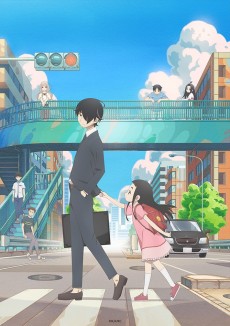 ANIME ComedyKakushigoto
ANIME ComedyKakushigoto ANIME Drama3-gatsu no Lion
ANIME Drama3-gatsu no Lion ANIME Slice of LifeUsagi Drop
ANIME Slice of LifeUsagi Drop ANIME SportsDiamond no Ace
ANIME SportsDiamond no Ace
SCORE
- (3.45/5)
TRAILER
MORE INFO
Ended inDecember 20, 2020
Main Studio MAPPA
Favorited by 273 Users
Hashtag #体操ザムライ

